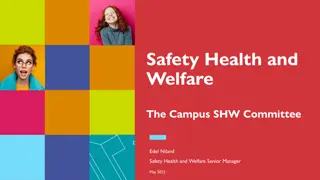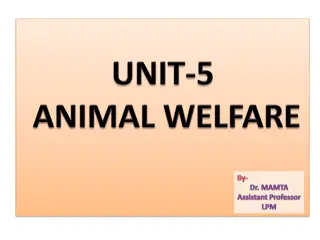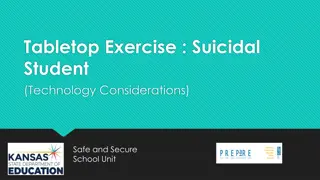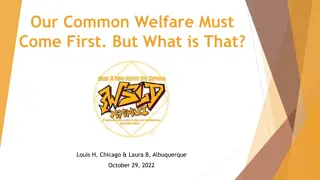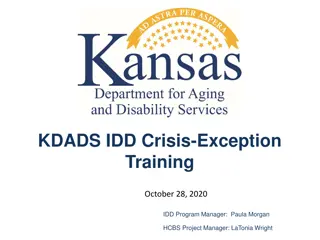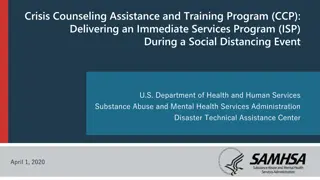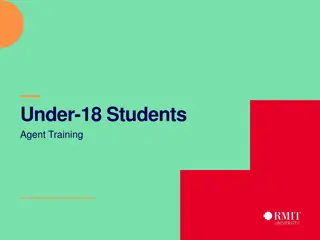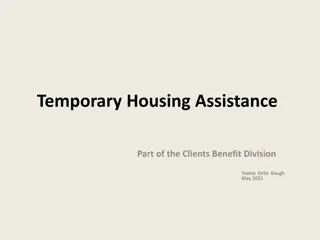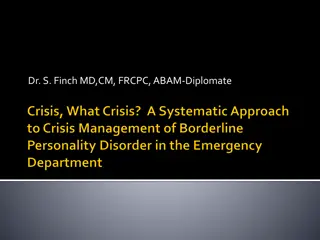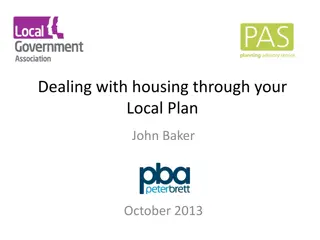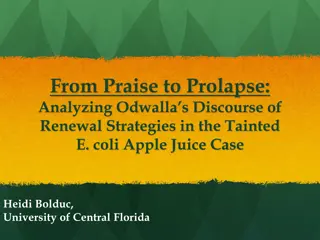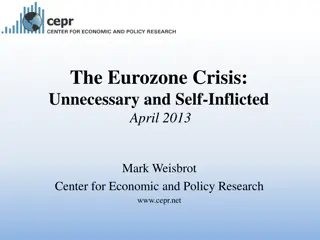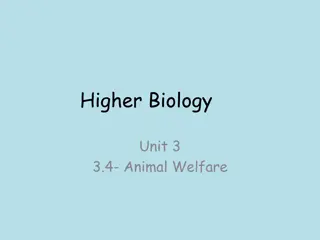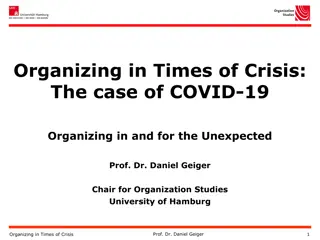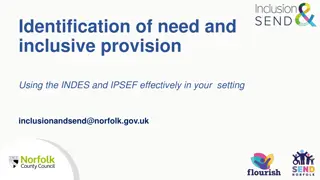Local Welfare Provision - Assistance for Crisis Situations
Bedford Borough Council introduced the Local Welfare Provision to offer Crisis Grants and Home in the Community Grants to residents experiencing unforeseen crisis or hardship. Crisis Grants support immediate health and safety risks arising from disasters, with assistance such as energy top-up vouchers or travel tickets. Eligibility requires residency and means-tested benefit entitlement. The scheme helps with emergency travel, essential health items, food, and fuel costs.
Download Presentation

Please find below an Image/Link to download the presentation.
The content on the website is provided AS IS for your information and personal use only. It may not be sold, licensed, or shared on other websites without obtaining consent from the author. Download presentation by click this link. If you encounter any issues during the download, it is possible that the publisher has removed the file from their server.
E N D
Presentation Transcript
Overview The DWP Crisis Loans were abolished in 2013 as part of the Welfare Reform. Bedford Borough Council, like many other Local Authorities introduced a new discretionary fund to assist their residents that are experiencing unforeseen crisis or hardship. Bedford Borough s scheme is called the Local Welfare Provision and offers two elements of support in the form of grants to our residents Crisis Grants and Home in the Community Grants. To be eligible for an assessment, the applicant must be a resident of the Borough for at least 2 months (unless they are fleeing domestic abuse) and be in receipt of, or would be entitled to a means tested benefit. Where a person is a resident of the Borough because they are under detention (e.g. in prison) the period of residency whilst in detention will not be considered.
Crisis Grants Crisis Grants are designed to meet expenses that cannot be met from another source and that have arisen as a consequence of a disaster. Assistance will be considered where there is an immediate and serious risk to the health and safety of an applicant, their partner or dependent child, where the risk has arisen as a result of a crisis, emergency or disaster. Crisis Grants should not be seen as a means of managing the pressures of being on a low income. Applications for Crisis Grants are done over the phone by calling 01234 718033. The assessor takes all the information over the phone and usually makes an instant decision as to whether the applicant is eligible. If they are not eligible, the applicant will be signposted to another dept or organisation that may be able to help or offer more specialised advice. Usually a maximum of 50 is awarded. There are circumstances in which we are able to offer a larger amount, e.g. travel to attend a funeral of a family member. Grants are given in the form of energy top up vouchers, train/coach tickets and very occasionally cash. We do not offer a cash grant for food, instead we make referrals to the Food Bank. We can assist applicants who are moving into paid employment from a means tested benefit. If a person had previously been in receipt of benefits for at least 3 months and moved into paid employment we will award them a 50 cash crisis grant to assist in their transition.
When can we help? Delay in the regular payment of benefits due to a clerical error; Victim of a crime; The onset of, or deterioration in, a disability of a member of the family; A breakdown of a relationship (especially where domestic violence or abuse is involved); Moved into paid employment and will experience a delay in income from benefits to wages.
What can we help with? Emergency travel expenses; The purchase, in an emergency, of essential sanitary or health items; The purchase of food, if a Food Bank referral is not available or applicable; The purchase of fuel or energy for heating; (meters only).
Home in the Community Grants Home in the Community Grants are intended to help vulnerable people live as independent life as possible in the community. Grants can be considered if the request is for a family experiencing exceptional pressures and or applicants moving into dependent living. Grants are awarded for very basic items for those experiencing genuine need. Home in the Community grants are applied for via an application form. This is available through our website, on individuals request or from our Customer Service Centre. The assessor will pursue many avenues to gather information to build a case before making a decision. This may include Social and Support Workers, Housing Options, Housing Associations, Probation Service and/or the Police or Fire Service. If a grant is awarded, vouchers for either brand new white goods or appliances are awarded or in the case of furniture, we have an agreement with the ReUse Centre to award upcycled furniture. This will be up to a maximum of 1500.
When can we help? Leaving long term care; Leaving prison or detention and have a strong local connection to Bedford Borough and were previously resident; Fleeing domestic violence or abuse; Moving to safeguard themselves from serious and imminent risk of other forms of violence or abuse; Moving to supported living or independent living; Young people leaving care; Leaving institutional or residential care; Families experiencing exceptional pressures.
What can we help with? Beds & bedding; Washing machines, cooker or microwave, fridge freezer; Essential furniture (table and chairs, upholstered chairs or sofa); Basic floor coverings; Portable heating appliances; Items essential for cleanliness and sanitation (basic vacuum cleaner, brooms, mop and bucket etc); Goods essential for the health and safety of a dependent child (fireguard, stair safety gates etc); Emergency house repairs that will if not repaired present an immediate threat to health safety or security (available for owner occupiers only);
When can we not help? a need which occurs outside the United Kingdom; or an educational or training need including clothing and tools; or distinctive school uniform or sports clothes for use at school or equipment to be used at school; or travelling expenses to or from school; or school meals taken during school holidays by children who are entitled to free school meals; or expenses in connection with court (legal proceedings) such as legal fees, court fees, fines, costs, damages, subsistence or travelling expenses; or a medical, surgical, optical, aural or dental item or service; or work related expenses; or investments; or costs of purchasing, renting or installing a telephone, broadband connection, cable television or satellite television and any associated charges;
or housing costs or arrears of rent other than minor repairs and improvements to the applicant s own property essential for health, safety or security; or debts or insolvency costs; or home decoration; or TV licence; or care provision; or holidays; or garaging, parking, purchase, and running costs of any motor vehicle except where the payment is being considered for emergency travel expenses;
Questions? Jade Gaynor 01234 276238 jade.gaynor@bedford.gov.uk Local Welfare Provision 01234 718033 localwelfareprovision@bedford.gov.uk


